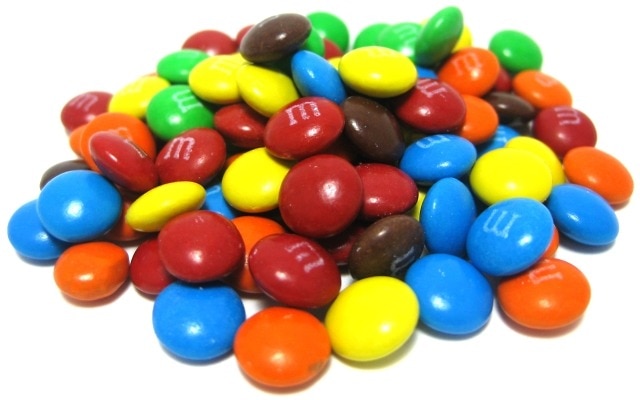 The use of nanoparticles in foods is increasing every year, but we still know very little about whether they have health risks to humans, especially if one is eating foods with them daily (thus having chronic exposure). The nanoparticles in foods are ingredients so small that they are measured in nanometers or billionths of one meter. The most common nanoingredients are: titanium dioxide, silicon dioxide, and zinc oxide.
The use of nanoparticles in foods is increasing every year, but we still know very little about whether they have health risks to humans, especially if one is eating foods with them daily (thus having chronic exposure). The nanoparticles in foods are ingredients so small that they are measured in nanometers or billionths of one meter. The most common nanoingredients are: titanium dioxide, silicon dioxide, and zinc oxide.
Titanium dioxide is typically used as a "food coloring" to make foods whiter or brighter, but it may or may not be listed on the label. In Europe, this food additive is known as E171. Currently there are no restrictions on using titanium diaoxide nanoparticles in food.
Recent search suggests that there may be health effects from the nanoparticles in our food (here and here), thus we should be cautious. Evidence is accumulating that titanium dioxide nanoparticles can have a negative inflammatory effect on the intestinal lining.
Similarly, a new study looking at both mice and humans suggests that individuals with inflammatory intestinal conditions such as intestinal bowel disease (colitis and Crohn's disease) might have negative health effects from titanium dioxide nanoparticles - that they could worsen intestinal inflammation. Interestingly, the nanoparticles accumulated in spleens of mice used in the study. The researchers also found that levels of titanium were increased in the blood of patients with active colitis. From Science Daily:
Titanium dioxide nanoparticles can exacerbate colitis
Titanium dioxide, one of the most-produced nanoparticles worldwide, is being used increasingly in foodstuffs. When intestinal cells absorb titanium dioxide particles, this leads to increased inflammation and damage to the intestinal mucosa in mice with colitis. Researchers at the University of Zurich recommend that patients with colitis should avoid food containing titanium dioxide particles. The frequency of inflammatory bowel disease like Crohn's disease and ulcerative colitis has been on the rise in many Western countries for decades.... In addition to genetic factors, environmental factors like the Western lifestyle, especially nutrition, play an essential role in the development of these chronic intestinal diseases.
The research of Gerhard Rogler, professor of gastroenterology and hepatology at the University of Zurich, now shows that titanium dioxide nanoparticles can intensify the inflammatory reaction in the bodies of patients with inflammatory intestinal diseases. Titanium dioxide is a white pigment used in medicines, cosmetics and toothpaste and increasingly as food additive E171, for example, in icing, chewing gum or marshmallows. Until now, there have been no restrictions on its use in the food industry.
The scientists led by Gerhard Rogler concentrated their research on a protein complex inside cells: the NLRP3 inflammasome. This protein complex is part of the non-specific immune system, which detects danger signals and then triggers inflammation. If the inflammasome is activated by bacterial components, for example, and the inflammatory reaction plays a vital role in the defense against infective agents. In the same way, NLRP3 can be activated by small inorganic particles -- sometimes with negative consequences: If uric acid crystals form in the cells, for example the inflammation leads to gout.
The research team first studied the effect of inorganic titanium dioxide particles in cell cultures. They were able to show that titanium dioxide can penetrate human intestinal epithelial cells and macrophages and accumulate there. The nanoparticles were detected as danger signals by inflammasomes, which triggered the production of inflammatory messengers. In addition, patients with ulcerative colitis, whose intestinal barrier is disrupted, have an increased concentration of titanium dioxide in their blood. "This shows that these particles can be absorbed from food under certain disease conditions," Rogler says.
In a further step, the scientists orally administered titanium dioxide nanoparticles to mice, which serve as a disease model for inflammatory bowel disease. Here, as well, the particles activated the NLRP3 complex, which led to strong intestinal inflammation and greater damage to the intestinal mucosa in the mice. In addition, titanium dioxide crystals accumulated in the animals' spleens. Whether these findings will be confirmed in humans must now be determined in further studies. "Based on our results," Rogler concludes, "patients with an intestinal barrier dysfunction as found in colitis should abstain from foods containing titanium dioxide." [Original study.]
